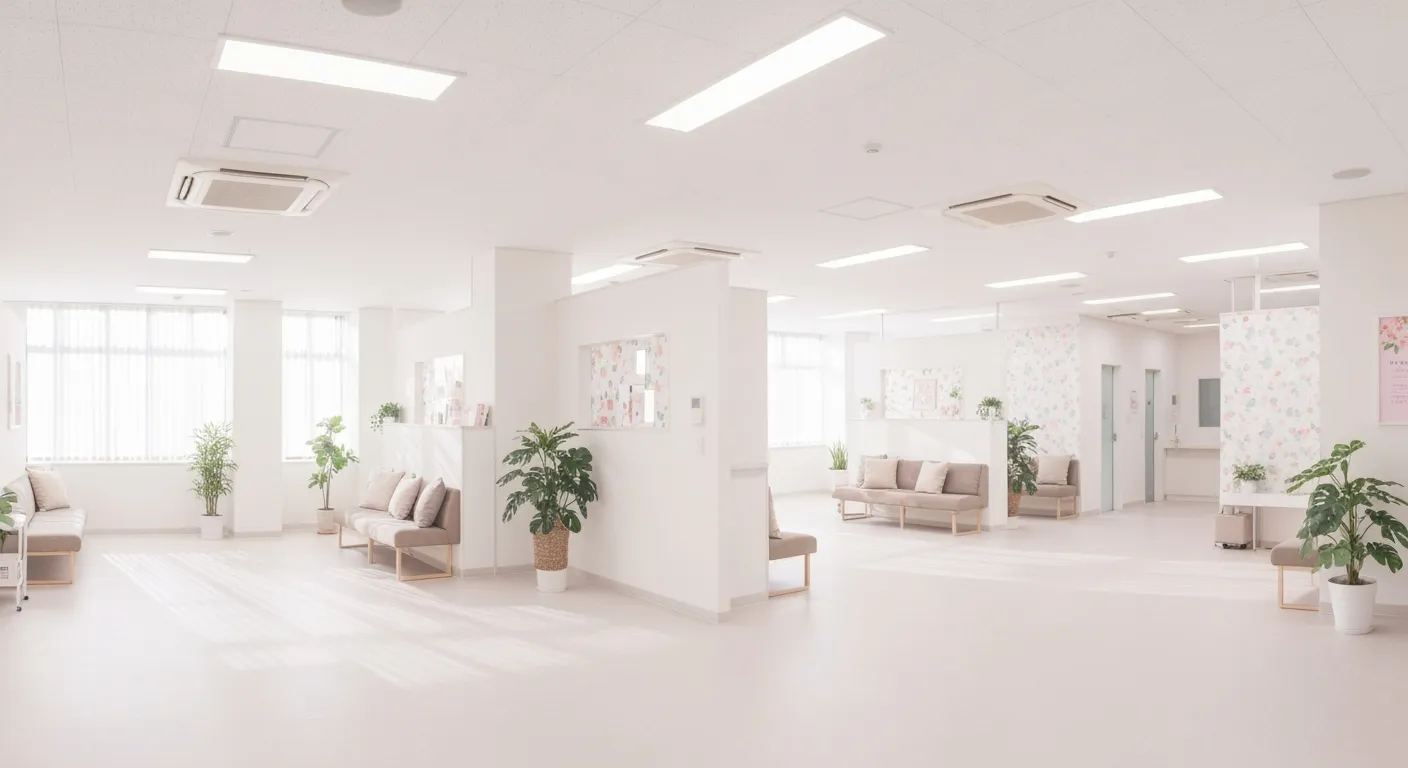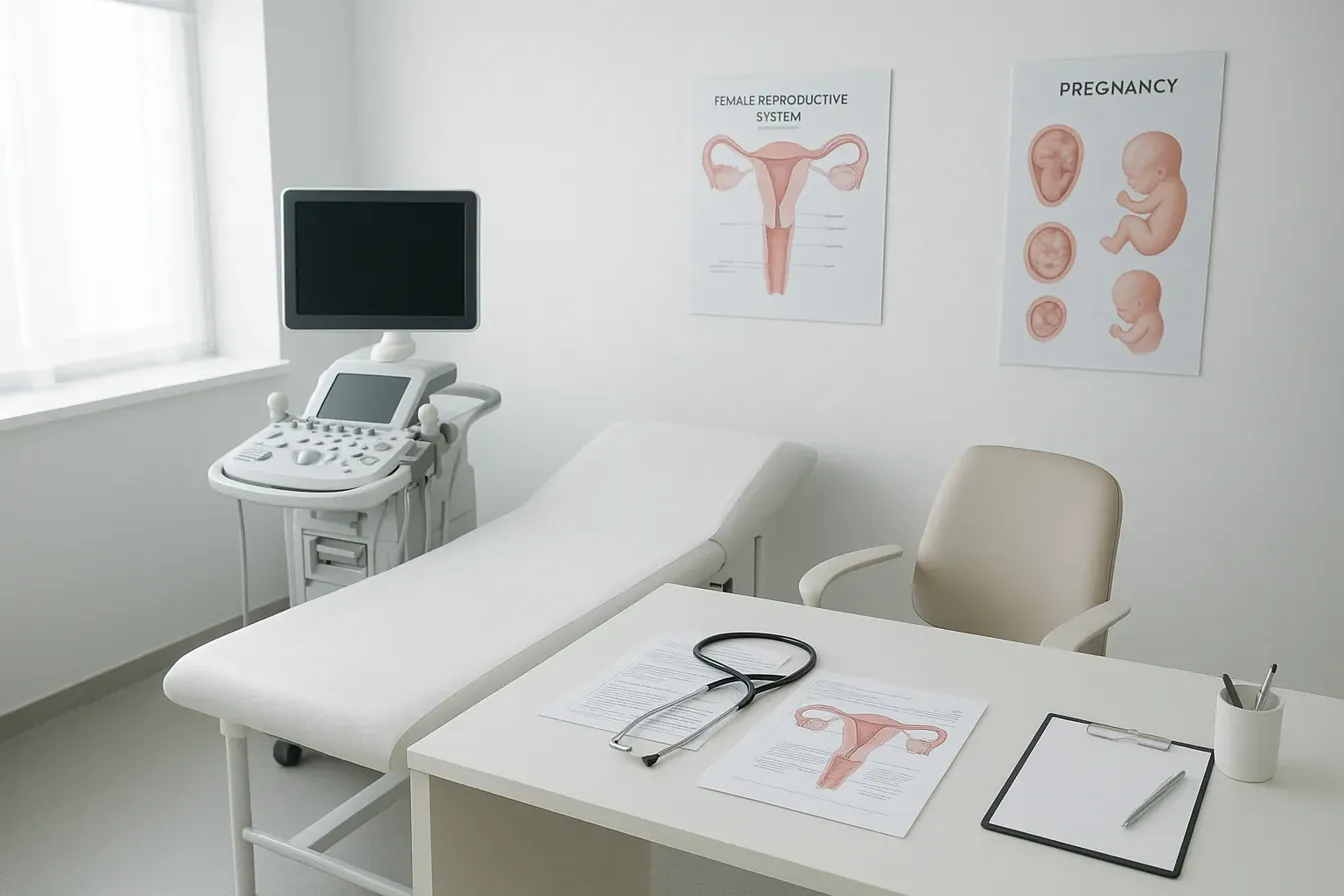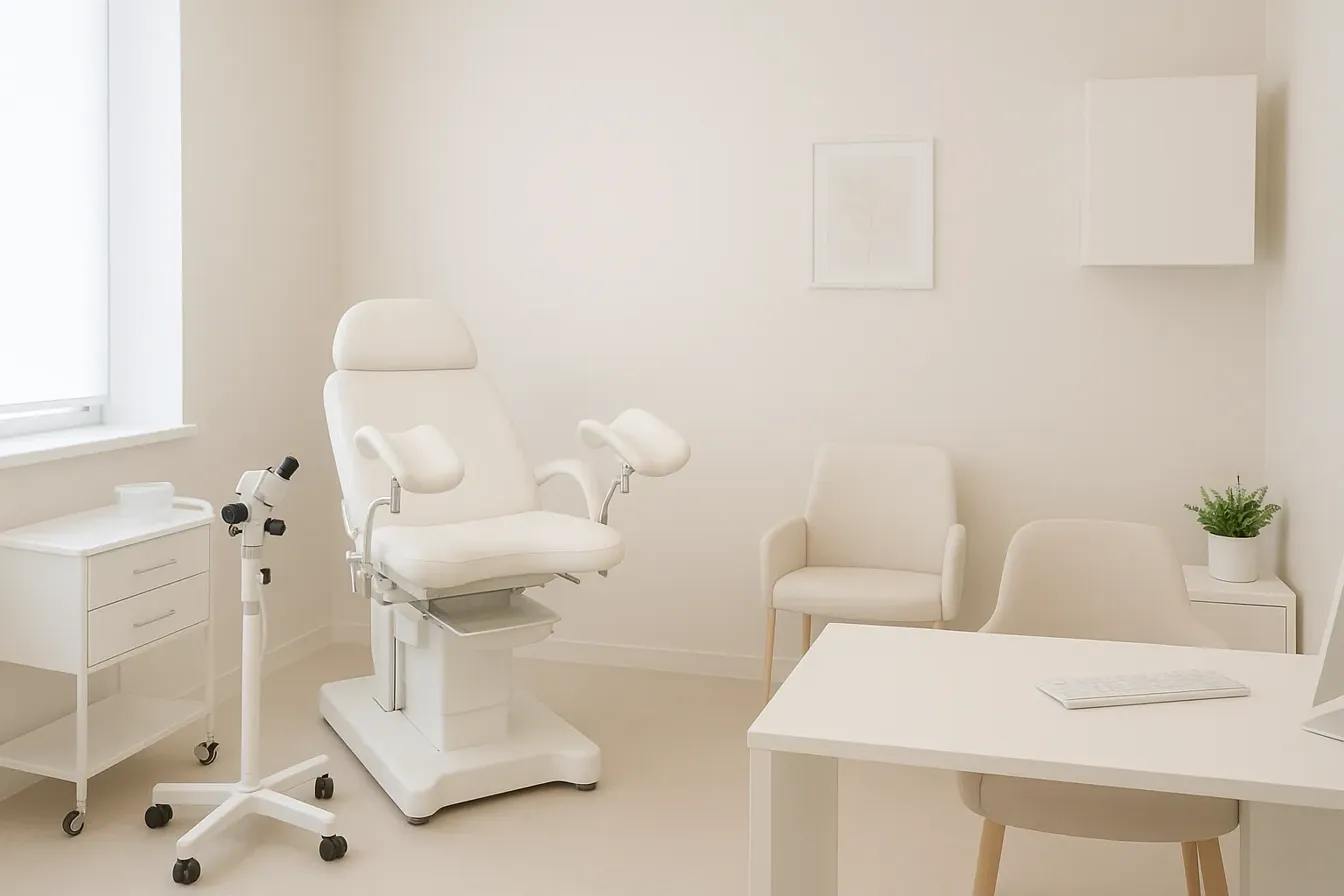Navigating Your Birth Control Choices: Tailoring Options to Fit Your Unique Lifestyle

Understanding the Importance of Timely Health Screenings for Women
Regular health screenings play a crucial role in maintaining women's health across every stage of life. From adolescence through older adulthood, specific tests and preventive measures are recommended to detect health issues early, manage risks, and promote overall well-being. This guide walks you through the essential women's health screenings by age group, explaining their purpose, typical procedures, and what to expect during each visit to empower informed health decisions.
Health Screenings During Adolescence and Young Adulthood (Ages 13-39)

What are the recommended women's health screenings at different ages?
Starting from ages 13 to 15, teenage girls should have their first wellness exams. These visits focus on physical growth, mental health, and preventive care, including immunizations such as the HPV vaccine, recommended at age 11 or 12.
In their 20s and 30s, women should undergo annual well-woman exams. These include Pap tests every three years for cervical cancer screening, STI screenings like chlamydia annually if sexually active, and routine checks for blood pressure and BMI.
Immunizations remain a vital part of preventive care, with updates and boosters as recommended, especially the HPV vaccine to prevent cervical and other cancers.
What is the purpose and importance of each women's health screening during various life stages?
During adolescence and early adulthood, these screenings help establish healthy lifestyle habits, detect and treat infections early, and ensure necessary immunizations are up-to-date.
They also provide opportunities to monitor mental health, screen for depression or anxiety, and discuss other health concerns related to growth and development.
Early detection of issues like STIs and cervical abnormalities can greatly improve health outcomes. These visits lay the foundation for long-term preventive health.
What typical procedures and tests are involved in women's health screenings by age group?
Typical procedures include physical examinations, pelvic exams, Pap tests starting at age 21, and STI testing such as chlamydia and gonorrhea.
Blood pressure and BMI are checked routinely to assess cardiovascular and overall health. Vision and hearing tests are also part of regular assessments.
Screenings for mental health, including depression and anxiety, are integrated into routine visits to support emotional well-being.
What can women expect during health screenings at different ages?
Women can expect health professionals to discuss menstrual health, personal hygiene, and lifestyle habits during these visits.
Vaccine updates, such as the HPV shot, are typically administered or scheduled. STI testing is performed based on sexual activity and risk factors.
Physicians also check vital signs and provide education on maintaining a healthy lifestyle, with referrals for further care if any health issues are identified.
Additional Considerations
Regular health visits during young adulthood help prevent future health problems and support overall well-being. Staying current with immunizations and screenings tailored to age and risk ensures best health outcomes.
Keep in mind that health recommendations can vary based on individual risk factors and medical history. Consult with healthcare providers to personalize your screening schedule.
Key Screenings for Women in Their 40s and 50s: Early Detection and Prevention
As women enter their 40s and 50s, staying proactive about health becomes increasingly important. Regular screenings help detect potential issues early, making treatment more effective and potentially saving lives.
Mammography guidelines and breast cancer screening are recommended starting at age 40. Women should typically have a mammogram every 1 to 2 years. These images help identify early signs of breast cancer, which is crucial for successful treatment. Women with higher risk factors might consider additional testing, such as MRI scans.
Cholesterol and blood pressure monitoring are vital for cardiovascular health. Blood pressure should be checked at least once every year or more frequently if risk factors like diabetes or a family history of heart disease are present. Lipid profiles or cholesterol checks are advised beginning at age 45, with the frequency depending on initial results. A normal level often warrants testing every five years.
Beginning colorectal cancer screenings is recommended from age 45 onward. Options include colonoscopy every ten years, sigmoidoscopy every five years, or stool-based tests annually. These screenings allow for early detection of possibly precancerous growths or cancer.
Cervical cancer screening updates involve Pap tests and HPV testing. For women aged 30 to 65, cotesting is recommended every five years, or Pap tests alone every three years. Women who have had a hysterectomy for reasons unrelated to cancer usually do not need ongoing screening.
Immunizations relevant to midlife women are essential for preventing disease. The shingles vaccine is recommended starting at age 50, along with other vaccines like pneumococcal. Vaccinations help protect against infections which can be more severe with age.
| Screening Type | Recommended Age Range | Frequency | Additional Notes |
|---|---|---|---|
| Mammography | 40+ | 1-2 years | Adjust based on risk factors |
| Blood Pressure | 40+ | Annually or as advised | Especially important for cardiovascular health |
| Cholesterol Test | 45+ | Every 5 years if normal | Earlier if risk factors are present |
| Colorectal Cancer Screening | 45-75 | Varies (every 3-10 years) | Choices include colonoscopy, stool test |
| Cervical Cancer Screening | 30-65 | Every 3-5 years | Includes Pap and HPV testing |
| Shingles Vaccine | 50+ | Once or as recommended | Protects against shingles and postherpetic neuralgia |
Maintaining a schedule of these screenings tailored to individual risk factors supports women’s health through early detection and prevention, fostering a healthier, more productive life during these transformative years.
Health Screenings for Women Over 60: Maintaining Quality of Life
As women age past 60, health screenings become even more vital to ensure ongoing well-being and independence. One important screening is for osteoporosis, with bone density scans such as DEXA being recommended around menopause or later if risk factors are present.
Regular cancer screenings should continue, including mammograms and colorectal cancer tests. Mammograms are typically performed annually or biennially, depending on individual risk and prior results. For colorectal health, options include stool tests, sigmoidoscopy, or colonoscopy at recommended intervals.
It's also crucial to assess cognitive health. Screenings for memory disorders, sleep disturbances, and mental health are important to manage and identify early issues that can affect quality of life.
Vaccination updates are a key part of preventive care. Women over 60 should receive the shingles vaccine, pneumococcal vaccines, and yearly flu shots. Additional immunizations like Tdap and boosters for other age-appropriate vaccines are recommended.
Managing chronic conditions is ongoing, with regular medication reviews and physical exams. These visits focus on controlling blood pressure, diabetes, and other ongoing health issues while monitoring for new health concerns.
Overall, these screenings and preventive measures support healthy aging, help detect potential problems early, and facilitate timely interventions. Women in this age group should discuss personalized screening plans with their healthcare providers to maintain their health and quality of life.
Understanding the Purpose and Benefits of Women’s Health Screenings Across Life Stages

What is the purpose and importance of each women's health screening during various life stages?
Health screenings serve a vital role in women's healthcare by allowing early detection of potential health issues. For example, blood pressure checks can identify hypertension before it causes serious complications like heart disease. Similarly, screenings like mammograms for breast cancer and Pap tests for cervical cancer help catch diseases in their earliest, most treatable stages.
As women age, the focus of screenings broadens to include assessments for chronic conditions such as diabetes, osteoporosis, and colorectal cancer. These tests not only help in early diagnosis but also in managing risk factors proactively.
Personalized care is central to effective screening programs. Factors like family history, lifestyle, and preexisting health conditions determine the frequency and type of tests recommended. For instance, women with a family history of breast cancer might need additional MRI scans, while those with risk factors for osteoporosis should discuss bone density screening.
Overall, these screenings contribute to improving long-term health outcomes by facilitating timely intervention, guiding lifestyle adjustments, and optimizing ongoing healthcare strategies. This proactive approach supports women in maintaining health and independence throughout their lives.
This comprehensive, stage-specific screening approach emphasizes the importance of individualized care, helping women address health issues early and improve their quality of life.
What to Expect During Your Routine Women’s Health Screening Visits

During women’s health screening visits, you can anticipate a variety of procedures tailored to your age, health risks, and medical history. These visits often include physical exams, vital sign checks, and discussions about mental health, lifestyle, and medications.
At a typical screening, your healthcare provider will measure your blood pressure, check your weight, height, and BMI, and may perform blood tests for cholesterol, blood sugar, and other markers, especially if you're in certain age groups or have risk factors. Younger women without risk factors generally undergo routine assessments, while women over 40 or those with specific concerns may also receive cancer screenings such as mammograms and Pap tests.
Cancer screening procedures vary with age. Mammograms are recommended starting at age 40, often every 1 to 2 years, to detect breast cancer early. Pap smears are performed to screen for cervical cancer every 3 years for women aged 21-29, and cotesting (Pap plus HPV test) every 5 years for women aged 30-65. For colorectal cancer, discussions about colonoscopy or stool tests typically begin around age 45, especially if risk factors are present.
In addition to these tests, immunizations like the annual flu shot, Tdap booster, and others depending on age are routinely administered. These visits also provide an opportunity to discuss mental health, such as anxiety or depression, state of nutrition, safety issues, and medication management.
Women should also expect tailored advice and testing based on their specific health profiles and family history. Regular checkups are vital for the early detection of health issues and maintaining overall well-being.
Specialized Screenings and Additional Considerations Based on Individual Risks
What are the recommended women's health screenings at different ages?
Screening practices vary widely depending on age, health history, and individual risk factors. For women aged 50 to 80 with a history of smoking, annual lung cancer screening using low-dose computed tomography (LDCT) is advised. This helps detect lung cancer early when treatment is more effective.
Women should begin monitoring for diabetes and prediabetes starting at age 35. Blood tests such as fasting plasma glucose (FPG), hemoglobin A1c (HbA1c), or oral glucose tolerance tests are utilized. Those with obesity or other risk factors may need more frequent testing.
Sexually transmitted infection (STI) testing is crucial for sexually active women. Women under 25 should be screened annually for chlamydia and gonorrhea, and testing may be required more frequently based on sexual activity and partner risk. HIV testing is recommended once between ages 15 and 65, while hepatitis C screening should be performed once for adults aged 18-79.
For individuals at high risk of skin cancer, including those with significant sun exposure, personal or family history of skin cancer, or numerous moles, regular skin checks are advisable. These examinations detect early signs of malignancy, improving outcomes.
Understanding your personal and family health history influences the screening schedule. A history of cancers, cardiovascular disease, or other conditions suggests a need for tailored screenings and preventive measures.
More about individual risk-based screening
| Age Range | Screening Tests | Frequency | Additional Notes |
|---|---|---|---|
| 35+ | Diabetes (prediabetes and type 2) | Every 3 years | More often with risk factors |
| 50-80 | Lung cancer (for smokers) | Annually | For heavy smokers with significant pack-year history |
| 15-65 | HIV testing | Once | Regardless of risk, recommended at some point |
| High risk for skin cancer | Skin exams | Regularly | Based on dermatologist assessment |
Regular screenings are vital for early detection and effective management of health issues. Consulting with healthcare providers helps personalize screenings and preventive care, ensuring the best health outcomes tailored to individual needs.
The Role of Immunizations and Infectious Disease Screenings in Women’s Health

What are the recommended women's health screenings at different ages?
Women should stay current with various immunizations to protect their health across their lifespan. This includes annual flu vaccines, which are vital for reducing the risk of influenza each year, especially during flu season. The Tdap booster, giving protection against tetanus, diphtheria, and pertussis, is recommended every 10 years.
Starting at age 50, women should consider the shingles vaccine (Shingrix) to prevent shingles and its complications. Other vaccines, such as pneumococcal, hepatitis A and B, and MMR, are based on individual health needs and risk factors.
In terms of infectious disease screenings, hepatitis C testing is recommended once for all adults aged 18-79, regardless of risk factors, as part of routine screening. HIV testing is advised between ages 15 and 65 to detect infections early and begin treatment promptly.
It is crucial for women to discuss their vaccination schedules and screening recommendations with healthcare providers, especially when they have specific health conditions or lifestyle factors that may influence their needs.
| Age Group | Recommended Screenings and Vaccinations | Additional Notes |
|---|---|---|
| 18-39 | Hepatitis C screening once; Tdap booster every 10 years; annual flu shot | Screenings as per individual risk |
| 40-49 | Continue previous; start shingles vaccine at 50 | Routine health assessments |
| 50-64 | Shingles vaccine, annual flu, routine adult vaccines | Additional screenings for chronic conditions |
| 65+ | Shingles booster, pneumococcal vaccine, annual flu | Evaluate for osteoporosis risk |
Staying up-to-date with immunizations and disease screenings offers strong protection against preventable illnesses and supports overall immune health throughout a woman's life.
Promoting Lifelong Wellness Through Regular Checkups and Healthy Lifestyle

What are the age-specific health monitoring and preventive care guidelines for women?
Women’s health needs change across different stages of life, making age-specific screenings essential for early detection and prevention. In their 20s and 30s, women should begin regular well-woman exams, including Pap tests every three years and STI screening such as chlamydia annually if sexually active. Blood pressure, cholesterol, and blood sugar checks are recommended to monitor cardiovascular and metabolic health.
As women reach their 40s, the focus shifts to breast and cervical cancer screenings, with mammograms starting at age 40 annually, and Pap tests or cotesting every 3 to 5 years. Cholesterol screening begins at age 45 if risk factors are present, or earlier if needed. Discussions about menopause and related symptoms become relevant. Middle-aged women should also consider colorectal cancer screening starting at age 45, with options like colonoscopy every 10 years.
For women aged 50 to 64, annual mammograms continue, and screenings for osteoporosis become important, especially if risk factors are identified. Heart health checks and diabetes screening every 3 years also take precedence. Women over 65 should maintain regular screenings, including bone density tests and assessments for age-related issues.
Throughout all these stages, personalized care based on family history, lifestyle, and risk factors guides the schedule and type of tests. Regular visits are an opportunity to discuss mental health, lifestyle habits, and vaccinations, which are vital for overall wellness.
Importance of routine health maintenance
Consistent health checkups serve as the foundation for early detection of diseases such as cancers, diabetes, or heart conditions. They allow healthcare providers to assess personal risk factors, provide health education, and recommend tailored preventive strategies.
Mental health and lifestyle discussions
Integrating mental health screening into routine visits can identify issues like depression or anxiety early. Discussions about healthy lifestyle choices—including diet, exercise, stress management, and sleep—are equally important for long-term well-being.
Role of physical exams in disease prevention
Physical exams include vital sign measurement and evaluations of body systems. They help detect early signs of health issues and ensure vaccinations and screenings are up to date.
Addressing delays in screenings, e.g., pandemic effects
The COVID-19 pandemic caused significant delays in routine screenings like cancer and bone density tests. Recognizing these gaps and resuming regular checkups is crucial to prevent missed diagnoses.
Encouraging personalized, ongoing care
Health needs are individual. Ongoing communication with healthcare providers helps adapt screening schedules and health plans as personal circumstances evolve, ensuring continuous, effective care.
| Age Range | Suggested Screenings/Tests | Frequency | Additional Notes |
|---|---|---|---|
| 20-39 | Pap smear, STI tests, blood pressure, cholesterol | Annually or as advised | Focus on reproductive and sexual health, mental well-being |
| 40-49 | Mammogram, blood sugar, cholesterol, cervical tests | Annually for mammograms; every 3-5 years for Pap/HPV | Assess menopausal symptoms, focus on heart and breast health |
| 50-64 | Mammogram, colonoscopy, osteoporosis screening | Annually for mammograms; colonoscopy every 10 years | Monitor bone health, screen for age-related conditions |
| 65+ | Bone density, colorectal, screening for age-related issues | As recommended, based on risk | Continue screenings unless health status changes |
Maintaining a proactive approach with regular checkups and a health-conscious lifestyle not only detects issues early but also empowers women to manage their ongoing health.
Empowering Women with Knowledge and Preventive Care
Understanding the recommended health screenings at every stage empowers women to take charge of their wellness proactively. Timely screenings, combined with ongoing medical guidance and healthy lifestyle choices, enable early detection and prevention of many health conditions. Regular checkups are essential to adapt care as women age, factoring in individual risks and life changes. Staying informed and engaged in one's health journey supports lasting vitality and quality of life.
References
- Health screenings for women ages 40 to 64
- Tests and exams women need at different life stages
- Women's health screenings by age: 21-65+
- Health screenings for women ages 18 to 39
- Essential Health Screenings for Women at Every Age
- Your Well-Woman Exam: Why It's Essential with ages and ...
- Patients | Screening & Diagnostic Tests for Women's Health





.png)